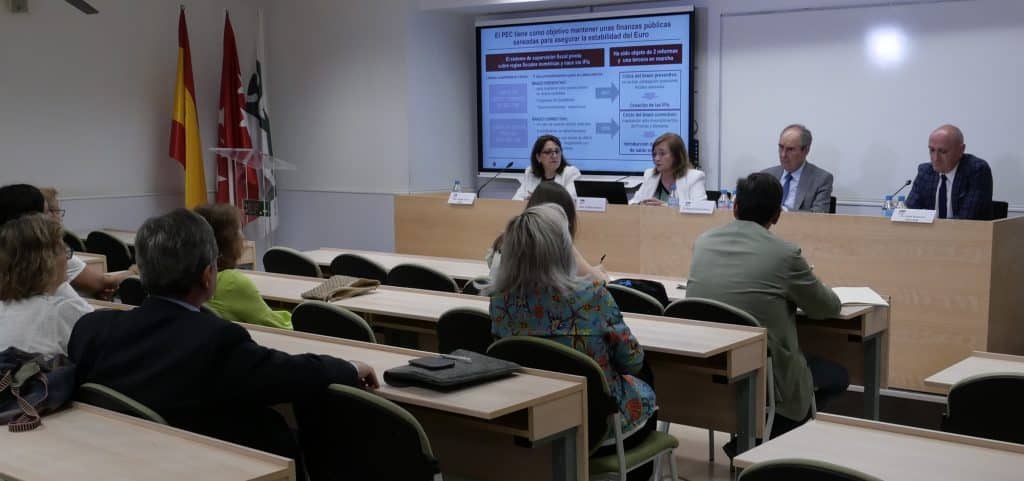
The president of the Independent Authority for Fiscal Responsibility (AIReF), Cristina Herrero, today gave a lecture at the Centre for Financial Studies (CEF) to coincide with the 45th anniversary of the establishment of the CEF-UDIMA Educational Group. During the lecture, Cristina Herrero reviewed the origins and characteristics of AIReF, a benchmark institution for fiscal policy.
Cristina Herrero began by reviewing the creation of AIReF, an institution driven by the second reform of the Stability and Growth Pact (SGP) after the 2007 crisis. This reform strengthened the fiscal rules and promoted the creation of Independent Fiscal Institutions (IFIs) as supervisors of compliance with these rules. Such institutions were created in Spain and in 16 other European countries. The new IFIs joined those already existing in Sweden, Hungary, Greece and the United Kingdom and those present in countries with long-established IFIs, such as Austria, the Netherlands, Belgium and Denmark.
AIReF, in particular, was created in 2013 and began operating in 2014 with the central objective of ensuring the sustainability of public finances. Today, and after reforming its statute twice, fiscal supervision and public policy assessment are the institution’s main functions. These functions, as the chairwoman stressed, are carried out under its three guiding principles: independence, transparency and accountability.
The work of fiscal supervision is carried out at all levels of general government through a differential and more granular analysis compared with other bodies. To carry out this supervisory work, AIReF prepares the reports required by law, in which it conducts an exhaustive analysis and issues recommendations that are governed by the principle of comply or explain. It also has tools for continuous monitoring of activity, such as the monthly monitoring of the stability target, the MIPred or real-time GDP forecast, the estimate by Autonomous Regions (METCAP) and the Debt Monitor.
For its part, evaluation work has been consolidated over the years. The ad hoc assignments to AIReF take the form of studies (Spending Review and other assignments) and the assessments assigned in a standard take the form of Opinions, such as that of the Minimum Living Income (MVI). In its assessments AIReF highlights the findings detected and makes proposals which, in this case, are not subject to the comply or explain principle. AIReF also issues Opinions on the matters covered by the Law that gave rise to its creation. In March this year AIReF published its first Opinion on the long-term sustainability of the General Government sector.
Since the outbreak of the pandemic, the fiscal rules have remained suspended, which has affected AIReF’s activity, although its supervisory role has not ceased. In 2024 the fiscal rules will be reactivated with a new fiscal governance framework more adapted to national specificities and a strengthening of the IFIs. This reinforcement, as the president pointed out, is particularly appropriate in a decentralised country like Spain, where AIReF acts as an integrating link between the European and national frameworks.





